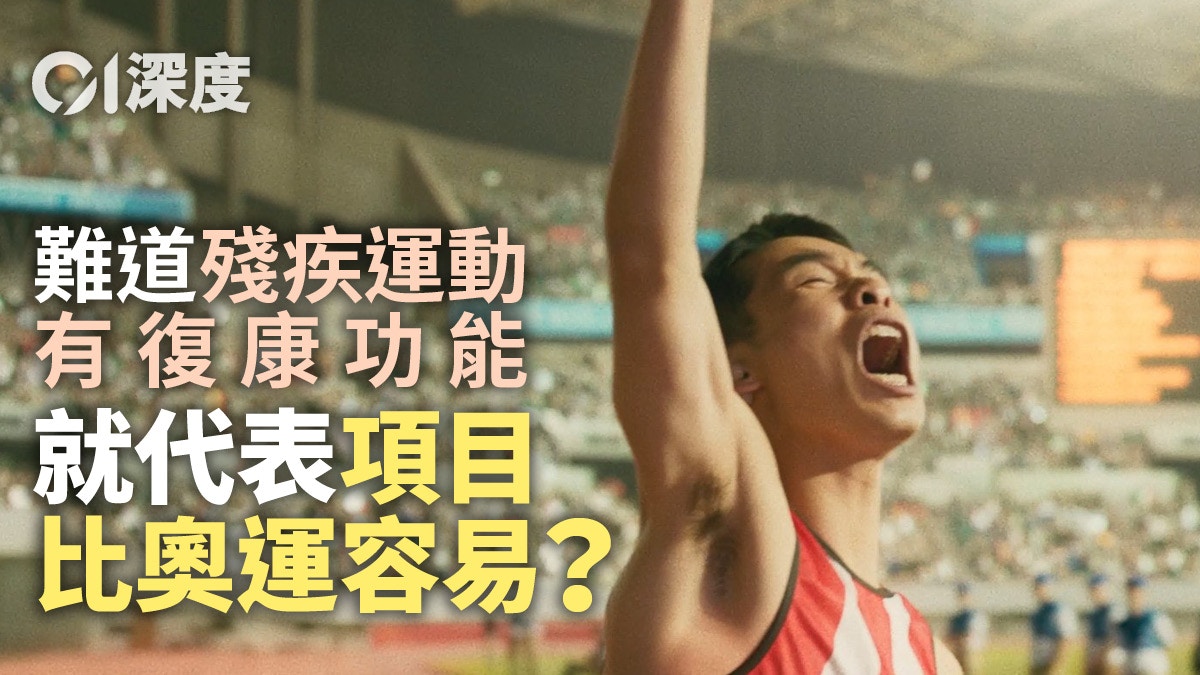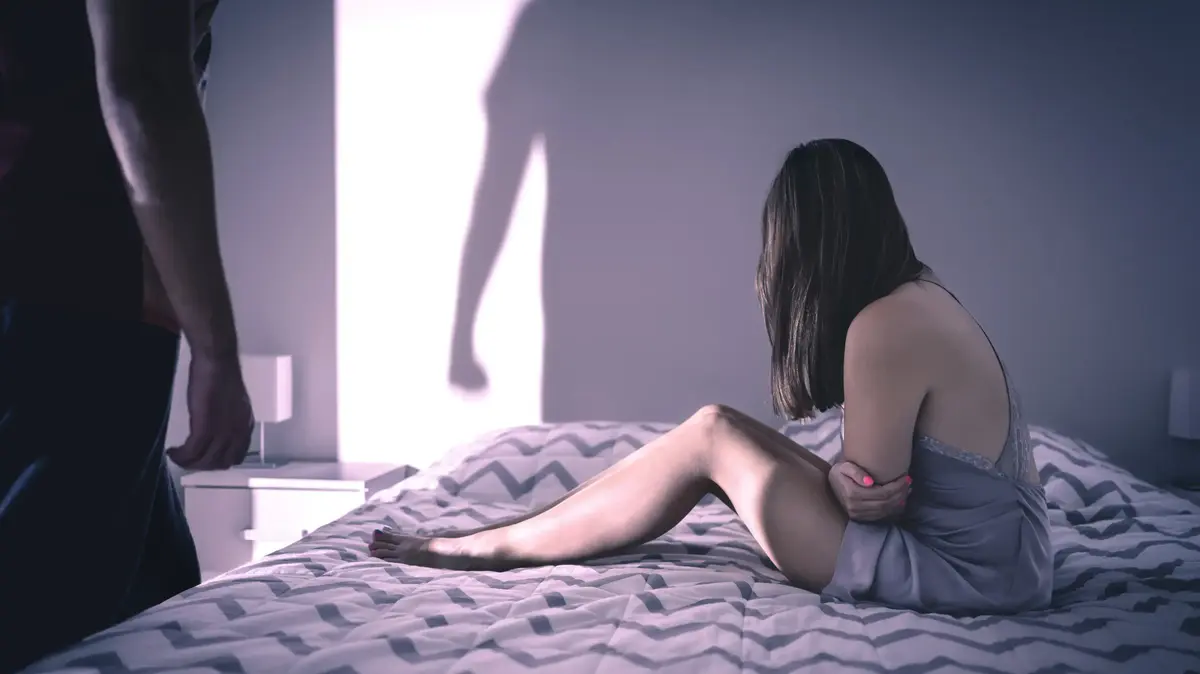The Tokyo 2020 Paralympic Games closed earlier, and the movie "Mom's Wonder Boy" was released, telling the story of Su Huawei, the track and field athlete who won six Paralympic gold medals for Hong Kong, and his career as an athlete.
The film revealed the bitterness of many disabled athletes, which aroused the audience's reflection.
There are many profound dialogues in the play. One of the scenes is that Su Huawei participated in the Paralympic T36 4x100 race for the first time. Parents wanted to invite relatives and friends to watch the Paralympics on TV, but they were told that the Paralympics would not be broadcast live on TV. Coach Su Huawei said One sentence: "The Paralympics are the same as the Olympics?" It
coincided that the Hong Kong government bought the broadcasting rights for this Tokyo Olympics. Together with the record-breaking performance of the Hong Kong team, it successfully led to the Olympics craze and followed closely. Disabled Australia has received attention.
However, even if this year's disabled athletes have achieved a total of 2 silvers and 3 bronzes, the enthusiasm of Hong Kong people seems to have diminished a lot.
This can't help but make people wonder, why are the society's attitudes towards the "Olympics" and the "Paralympics" so different?
Exercise is just a course of rehabilitation for the disabled
"The issue of unfair treatment of athletes with disabilities has been a nuisance for more than 20 years, because in history, sports with disabilities are just a course of rehabilitation, which is different from the purpose of sports for able-bodied people." Xue Huiping, professor of the Department of Sports Science at CUHK, was interviewed by "Hong Kong 01". Explain the reasons for the differential treatment of disabled athletes and able-bodied athletes.
The history of the disability movement can be traced back to the 19th century.
At that time, European scholars conducted research and found that exercise was of great benefit to the retraining and rehabilitation of the disabled.
Since then, several European countries have begun to promote the development of sports for the deaf and dumb. The UK established the first sports club for the deaf and dumb in 1871-the Glasglow Deaf and Dumb Football Club (Glasglow Deaf and Dumb Football Club).
Later, several French sports clubs and national organizations for the deaf were established in the late 19th century and early 20th century respectively. In 1924, the French Deaf Sports Association organized the first "International Silent Games" (International Silent Games).
After the Second World War, the disability movement really spread to different countries.
The war has caused as many as 35 million people in the world to face the problem of physical disabilities. British neurosurgeon Ludwig Guttmann (Ludwig Guttmann) established the "National Spinal Nerve Injury Treatment Center", hoping to help the disabled Rehabilitation, the treatment process includes "exercise therapy".
When London hosted the Olympic Games in 1948, Gutman organized a wheelchair archery competition at the hospital in the British village of Stoke Mandeville and named it the Stoke Mandeville Games (Stoke Mandeville Games). ).
The contestants are veterans who suffered spinal cord injuries in World War II, and this is part of the rehabilitation plan.
This Games is also the embryonic form of the Disabled Olympics.
The birthplace of the Paralympic Games is the Stoke Mandeville Hospital in the British village.
(Reuters)
After straightening out the historical context of the Paralympics at the end of the 19th century and the beginning of the 20th century, we will find that the meaning of the disabled movement and the healthy movement is indeed different.
The meaning of healthy sports is to compete and show strength. The reason why the ancient Greeks founded the Olympics was originally the competition between sacrificial gods and sports enthusiasts.
In the later period, the goal has become that the Greek city-states declared their superiority and strength through sports competition, which has great political significance.
On the other hand, the disability sport is precisely because its origin is to assist the handicapped in rehabilitation. Competition between contestants in the competition means less than able-bodied athletes, and the country will not use it as a tool to declare national strength.
The modern Paralympics require more refinement of the project
However, history is finally over. In addition to assisting athletes in rehabilitation, disabled sports and competitions also add a sense of competition, requiring athletes to have a certain degree of accuracy in each event.
"Therefore, I think we should focus on the abilities of disabled athletes, rather than focusing on their participation in sports with disabilities. For example, at the opening of the East Paralympic Games, the organizers produced a clip stating that the disabled are only 15% of the ordinary people in the world’s population. There is no difference from the able-bodied, so they should be treated equally." Xue Huiping said that the English "paralymics" for the Paralympic Games is composed of "para" and "olympic" "lympic".
When the Paralympics was first established, the main contestants were soldiers from World War II who suffered spinal cord injuries to lower body paralysis, so "para" means the English word "paraplegia"-that is, lower body discomfort; however, the current Paralympics have covered different levels and types. Disability item, and "para" means the Greek word "parabola", with the meaning of "parallel", "approaching", and "surpassing".
The theme of the Tokyo Paralympic Opening Ceremony is "We The 15", which means that people with disabilities are only 15% of ordinary people in the world.
(Getty Image)
Furthermore, according to the "Olympic Principles" listed in the "Olympic Charter", sport is a human right. Everyone must have the right to be free of any discrimination and in accordance with the Olympic spirit-mutual understanding, friendship, unity and fair competition. Possibility of practicing sports.
It’s worth noting that the International Paralympic Games and the Olympic Committee are not affiliated, but cooperative. "It’s just that many countries will strive to be the host country and broadcast rights of the Olympic Games. As a result, a climate has formed that makes the outside world think that the Paralympics are just hosting. There are conditions attached to the Olympics.” In fact, the outside world should not regard the Paralympic sports as the "simple version" or the "disabled version" of the Olympics. They should be regarded as different sports.
The mainstream society seeks the excitement of sports, the paralympic, and the viewing value
Xue Huiping believes that the Hong Kong government's purchase of the broadcasting rights for this Olympic Games is a considerable improvement and is moving in a better direction.
Of course, the current situation has improved compared with Su Huawei's first competition. Members of the Hong Kong team who played in the Eastern Paralympics also think this is a historic change, but the Paralympics are still "different" from the Olympics.
The so-called "different" does not lie in the status between the two, but in how society and the government view the two.
In this year's East Olympics, there are a total of five free radio stations that broadcast live events around the clock, and each TV station is more "effective" to promote it, such as inviting coaches and athletes from different events to comment.
However, the government only required each TV station to broadcast the Paralympic events for 30 minutes a day. Afterwards, although Sports Commissioner Yang Deqiang announced that Radio Hong Kong would join the broadcast, only 1-2 hours of Paralympic events would be broadcast every day.
As a result, the athletes of the healthy Hong Kong team won the card, the city cheered, and the media reports even made the popularity of the athletes who did not win the prize instantly increase. On the contrary, the attention of Hong Kong people to the Paralympics is obviously not that of "watching the finals together in the mall." The media also unconsciously reduced their coverage of them.
Professor of the Department of Physical Education of CUHK has studied sports for the disabled for many years. According to her understanding, the reason why mainstream society pays more attention to the Olympics than the Paralympics is the difference in viewing value between the two.
(Photo by Gong Jiasheng)
Xue Huiping analyzes this social phenomenon from two aspects: "First, because the mainstream society will use a stimulating perspective as the starting point for watching the Olympics, so that they have a better understanding of the Olympics, especially when the Olympics will emphasize "faster, higher, and better." "Strong", and that both local and foreign elite Olympic athletes are more well-known than Paralympic athletes, and they will pay more attention in disguise. Secondly, because of their high reputation, from an economic point of view, the business community will be valued for viewing And increase funding for able-bodied athletes as an investment."
The problem is that looking at the world, the importance of the Paralympics has been gradually increased. For example, the British Channel 4 TV station provides 300 hours of event coverage around the clock, and its online page provides 16 channels of live events, totaling 1,000 hours.
Australian TV Seven provides live events, and its "7plus" video network will also provide live broadcasts, event highlights and special programs.
The Japanese government also arranged for 130,000 elementary and middle school students to watch the scene to make them better understand the Paralympics and disability sports.
It is a pity that Hong Kong is still lagging behind. Not only does it lack public education on sports for disability, it also treats athletes differently, and it is getting farther and farther away from building a fair and just society.
Continue reading:
Mom’s Wonder Boy·Disability Sports | How to improve the unequal treatment of athletes?















